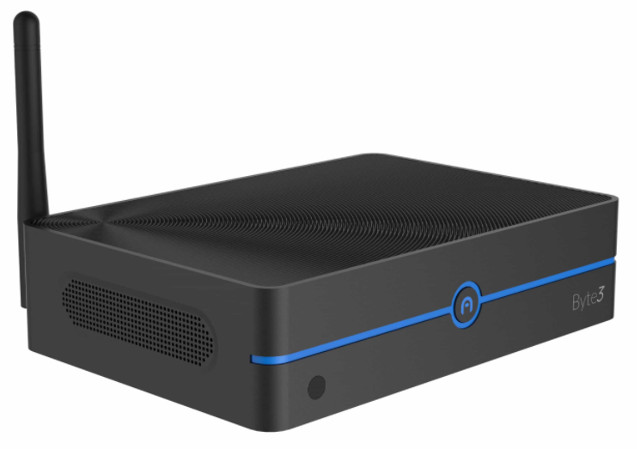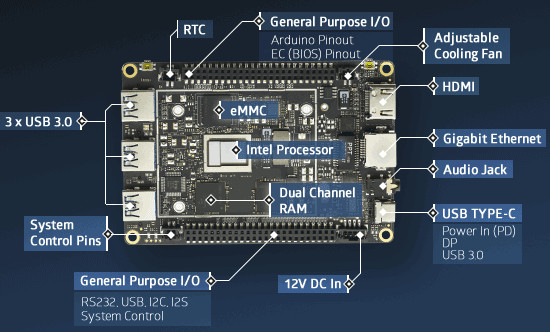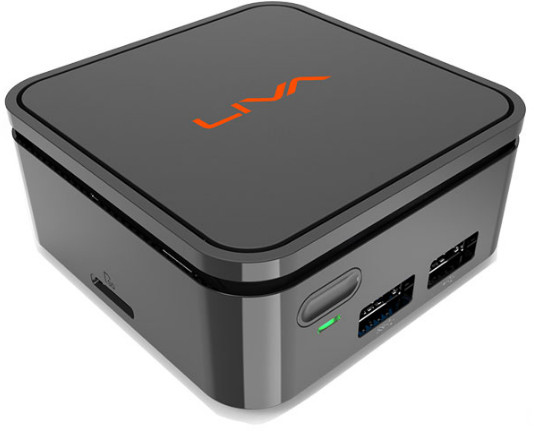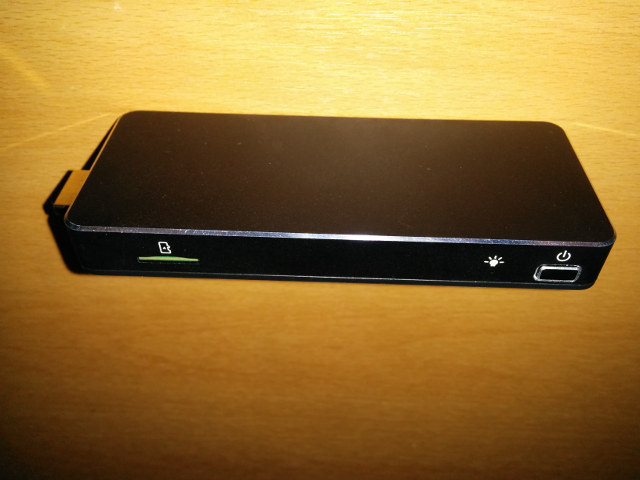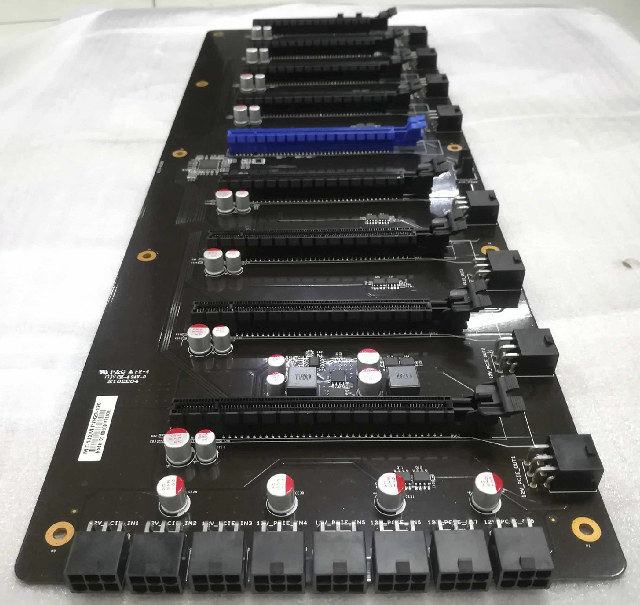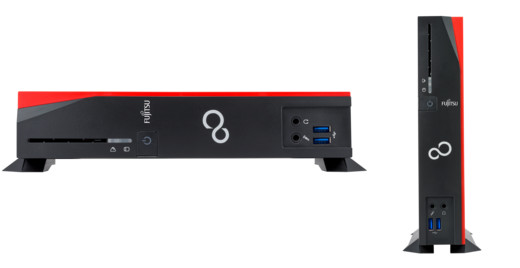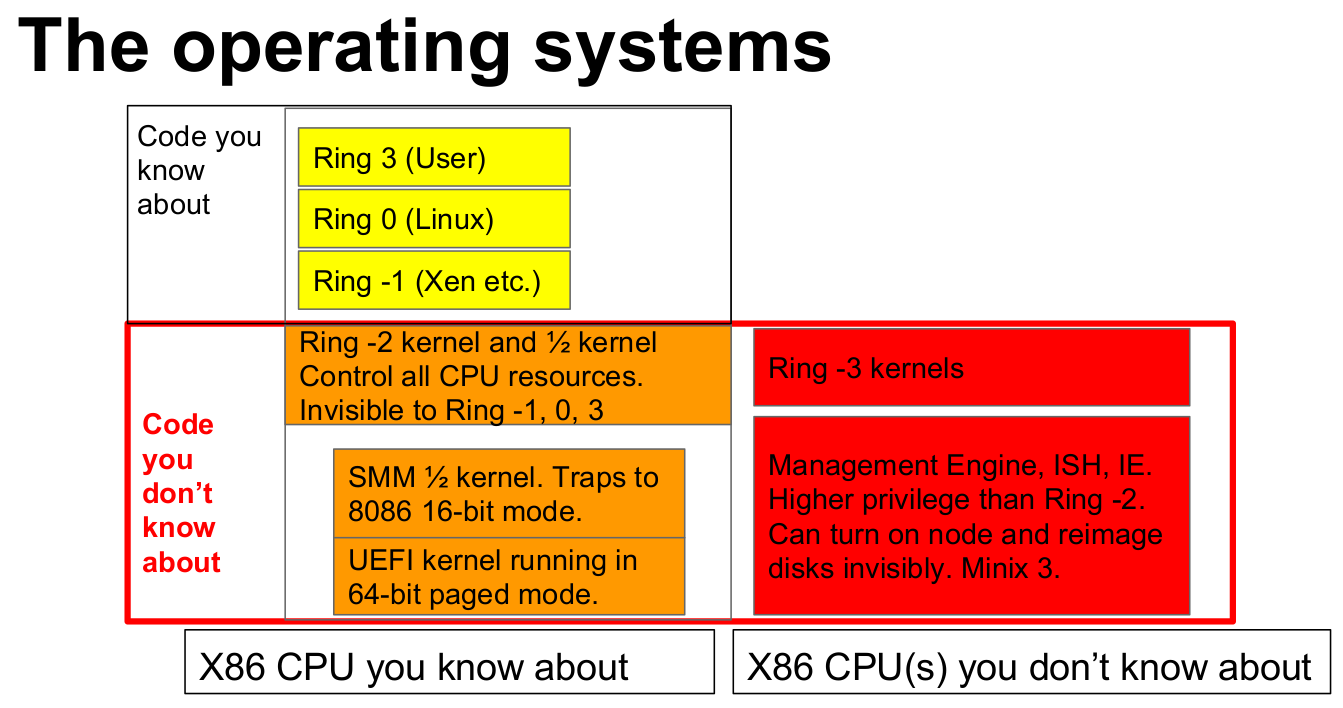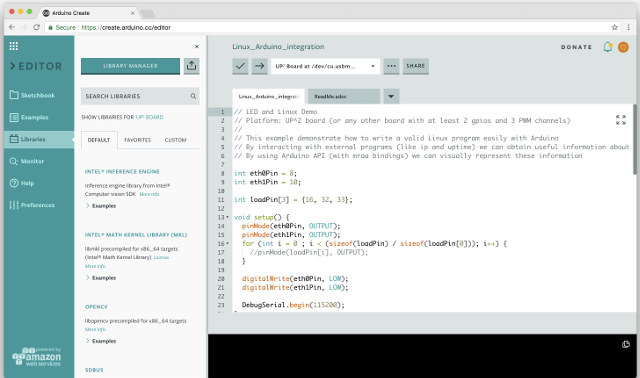The Azulle Byte3 is a fanless Apollo Lake device featuring both M.2 slot and a SATA connector, as well as supporting HDMI and VGA. It includes USB (both 2.0 and 3.0 including a Type-C port) as well as Gigabit Ethernet: It features an Apollo Lake N3450 SoC and comes with 32GB of storage plus an option of either 4GB or 8GB of RAM and a further option of either with or without Windows 10 Pro meaning Linux users can save around USD 20. Azulle provided me with a device for review and it came in a presentation box complete with a power adapter, and remote control together with a quick guide pamphlet. Whilst the power adapter includes an interchangeable plug it only came with one suitable for the US. Looking at the detail specifications: it is important to realize that the Type-C USB is USB 3.0 which […]
LattePanda Alpha/Delta Kaby Lake & Gemini Lake Development Boards Support Windows 10 Pro or Linux (Crowdfunding)
LattePanda development board based on Intel Atom x5-Z8300 “Cherry Trail” processor was launched nearly exactly two years ago on Kickstarter. The board also included an Atmel MCU for Arduino compatibility, and contrary to most development boards on the market, focused on Windows 10 support instead of Linux. The crowdfunding campaign was very successful having raised over 440,000 GBP from around 4,000 backers, and now you an still buy the board and accessories on DF Robot or Amazon. The company is now back with not only one, but two new LattePanda “hackable computers”, namely LattePanda Alpha powered by an Intel Core m3-7Y30 dual core “Kaby Lake” processor, and LattePanda Delta based on Intel Celeron N4100 quad core Gemini Lake processor. This time beside offering Windows 10 Pro, they are also committed to support Linux. Beside processor, memory capacity, and storage options, LattePanda Alpha/Delta boards share most of the same specifications: SoC […]
ECS LIVA Q Could Be The World’s Smallest 4K mini PC
Taiwan based ECS announced several Apollo Lake mini PCs in the past such as Liva Z /ZE based on Intel Celeron N3350/N3450 or Pentium N4200 processor. The company has now launched a new Apollo Lake model. LIVE Q is powered by either Intel Pentium N4200 quad core processor, or Intel Celeron N3350 dual core processor, fitted with 2 to 4GB RAM, and the company claims it’s the world’s smallest “4K pocket computer”. ECS LIVA Q specifications: SoC Intel Apollo Lake Pentium N4200 quad core processor @ 1.1 / 2.5 GHz with 18EU Intel HD graphics; 6W TDP Intel Apollo Lake Celeron N3350 dual core processor @ 1.1 / 2.4 GHz with 12EU Intel HD graphics; 6W TDP Memory – 2GB/4GB LPDDR4 Storage – 32 or 64GB eMMC flash, micro SD slot up to 128GB Video Output – HDMI 2.0 up to 4K @ 60 Hz Connectivity – Gigabit Ethernet, Intel […]
BBen MN10 TV Stick Review – Windows 10, Ubuntu 17.04, Benchmarks, and Kodi
The BBEN MN10 is the second Apollo Lake device to be released in the stick form-factor and on paper looks to have a lot to offer: It features an Apollo Lake N3350 SoC, an unusual 3GB of RAM, 64GB of storage and is cooled by a ‘mute’ fan. The devices comes in a plain box with a power adapter, and a leaflet style manual. It also included a three-pin UK power adapter, as this was advertised as the ‘BBen MN10 Mini PC – UK PLUG BLACK’. Looking at the detail specifications: We can immediately see discrepancies as the device does not have a ‘RJ45 Port Speed: 1000M LAN’ port, and was not supplied with ‘1 x HDMI Cable’ nor ‘1 x Remote Control’. Powering on the device and the ‘mute’ fan is also a miss-representation as it starts immediately and is noticeably noisy. It also runs at full speed regardless […]
Colorful C.J1900A-BTX Plus V20 Bay Trail Motherboard Takes 8 Graphics Cards for Cryptocurrency Mining
Intel Bay Trail processors are mostly found in tablets, 2-in-1 hybrid laptops, and mini PCs, and they’ve often give placed to Cherry Trail processors, and in some cases Apollo Lake ones. x86 compatibility, low cost and low power are the main selling points of the Bay Trail processor family. Colorful has found a different use case, as they designed a motherboard with 9 PCIe x16 slots, one for a card powered by an Intel Celeron J1900 processor, and 8 to add graphics card in order to mine cryptocurrencies. The blue PCI slot takes a PCI CPU card with an the following specifications: SoC – Intel BayTrail J1900 quad core processor @ up to 2.42 GHz with 2M Cache, integrated Intel HD graphics; 10W TDP Memory – 1×DDR3L SO-DIMM, DDR3L 1333MHz/1066MHz Storage – 1x mSATA slot, 1x SATA 3.0 connector, 1x 4-pin SATA connector Video Output – HDMI Connectivity – Dual […]
FUJITSU FUTRO S540, S740, and S940 Thin Clients are Powered by Intel Gemini Lake Processors
Intel Gemini Lake processors should be officially launched in a few weeks with Pentium & Celeron SKUs. We already have a good idea about the new processors’ features, but AFAIK so far there’s been no official announcement of products based on the new processor family, since companies must still be under embargo. FanlessTech noticed three new FUJITSI FUTRO thin clients (S540, S740, and S940), and upon further research found they were based on mini-ITX and mini-STX motherboards equipped with Intel Celeron J4005/J4105 or Pentium J5005 Gemini Lake SoC. Let’s have a look at one of the models’ specifications (FUTRO S940): Mainboard – D3543-A mini-ITX board SoC – Intel Pentium Silver J5005 quad core processor @ up to 2.8 GHz with Intel Gen9 HD Graphics supporting DirectX 12, OpenGL 4.4, Open CL 1.2, OpenGL ES 3.1, Vulkan; 10W TDP System Memory – 2 GB – 16 GB via SO-DIMM slot (DDR4, 2400 […]
MINIX based Intel Management Engine Firmware & UEFI are Closed Source & Insecure, NERF to the Rescue!
You may have heard a few things about Intel Management Engine in recent months, especially as security issues have been found, the firmware is not easily upgradeable, and the EFF deemed it a security hazard asking Intel for ways to disable it. In recent days, I’ve seen several media reports about the Management Engine being based on an Intel Quark x86-based 32-bit CPU running MINIX open-source operating system. Keep in mind, there’s nothing nefarious about MINIX, it’s just that Intel keeps its own developments on top closed. One of sources for the information is a blog post explaining how to disable Intel ME 11, but ZDNET also points to one of the talks at the Embedded Linux Conference Europe 2017 entitled “Replace Your Exploit-Ridden Firmware with Linux” by Ronald Minnich, Google which explains the problem, and proposes a solution to (almost) disable Intel’s ME, and replace UEFI by a small […]
Arduino Create Adds Support for Linux Development Boards (based on Intel processors for now)
Most people are used to program Arduino compatible boards with the Arduino IDE that they’ve installed in their Windows/Linux/Mac OS computer, and manage everything locally. But Arduino introduced Arduino Create last year, which includes Arduino Web Editor allowing you to perform the same tasks in your web browser, and save your files in the cloud. The company has now added Linux support to Arduino Create so that users can now program their Linux devices as if they were regular Arduino boards, and easily deploy IoT applications with integrated cloud services. The initial release has been sponsored by Intel, and currently supports X86/X86_64 boards, but other hardware architectures will be supported in the coming month. In the meantime, AAEON UP2 board is the best platform to get started, as a complete getting started guide is available for the platform. But other mini PCs such as Intel NUC, Dell Wyse, Gigabyte GB-BXT are […]


